Unique Traditions of Kids in Different Countries
Unique Traditions of Kids in Different Countries
Children around the world partake in various unique traditions that reflect their culture, history, and social values. These traditions not only create cherished memories but also instill important life lessons. In this article, we will explore the fascinating customs that define childhood experiences in different countries.
1. Japan: Shichi-Go-San
In Japan, the Shichi-Go-San festival is celebrated every November to honor children aged seven, five, and three years old. During this time, children dress in beautiful traditional attire, and families visit shrines to pray for their health and well-being.
This tradition symbolizes the growth and transition of children into their respective ages and is an occasion filled with joy and celebration.
2. India: Raksha Bandhan
Raksha Bandhan is a significant festival in India that celebrates the bond between brothers and sisters. On this day, sisters tie a protective thread known as ‘rakhi’ around their brothers’ wrists, while brothers promise to protect their sisters and give them gifts.
This tradition fosters a sense of family loyalty and highlights the importance of sibling relationships, making it a beloved occasion among kids.
3. Mexico: Día de los Muertos
In Mexico, the Día de los Muertos (Day of the Dead) is a vibrant celebration where families remember their deceased loved ones. Children participate by decorating altars with flowers, photographs, and favorite foods of the departed.
This tradition teaches children about life, death, and the importance of remembering those who came before them, all while fostering a celebratory spirit.
4. Brazil: Festa Junina
The Festa Junina is a traditional festival that takes place in June across Brazil, celebrating rural life. Children dress up in country-style clothing, participate in dances, and enjoy typical foods like popcorn and canjica.
This lively festival promotes community bonding and imparts cultural values, which are vital for children to understand their heritage.
5. China: Lunar New Year
The Lunar New Year, also known as Spring Festival, is one of the most important celebrations in China. Children receive red envelopes containing money, known as ‘hongbao,’ from their elders, symbolizing good luck and prosperity for the coming year.
This tradition emphasizes the significance of family togetherness and the passing down of blessings from one generation to the next.
6. Scotland: Beltane
Beltane is an ancient Celtic festival celebrated on May 1st in Scotland. Children participate in the festivities by making floral crowns and dancing around bonfires to welcome the arrival of summer.
This vibrant tradition connects children with nature and the changing seasons, highlighting the importance of environmental awareness.
7. South Korea: Doljanchi
The Doljanchi is a first birthday celebration in South Korea. A special ceremony is held where the child is dressed in traditional attire and presented with various items to predict their future career based on what they choose.
This event symbolizes hope and aspirations for the child’s future, imparting cultural values of familial pride and celebration.
8. Greece: St. John’s Day
In Greece, children celebrate St. John’s Day by jumping over bonfires, a tradition believed to bring good luck and health. Parents often encourage their children to partake in this activity, fostering bravery and camaraderie.
This tradition teaches lessons about courage while creating a fun and festive atmosphere for kids.
9. Finland: Juhannus
Juhannus (Midsummer) is a popular summer festival in Finland where children enjoy various outdoor activities like swimming and camping. Families light bonfires and often celebrate near lakes or in nature.
This tradition connects children with the beauty of nature and encourages a love for outdoor adventures.
10. Italy: Ferragosto
During Ferragosto, celebrated on August 15th, Italian families traditionally gather for a big feast. Children participate in games and activities during this summer holiday, marking the end of the harvest season.
This event offers a sense of community and encourages children to appreciate the values of sharing and celebration.
Conclusion
Each of these traditions provides insight into the rich cultural fabric of our world. These customs not only create memories but also help shape children’s identities, teaching them important lessons and values that will carry into adulthood. By celebrating and preserving these traditions, we honor the diverse experiences of childhood across the globe.
Children around the world partake in various unique traditions that reflect their culture, history, and social values.
Each of these traditions provides insight into the rich cultural fabric of our world.

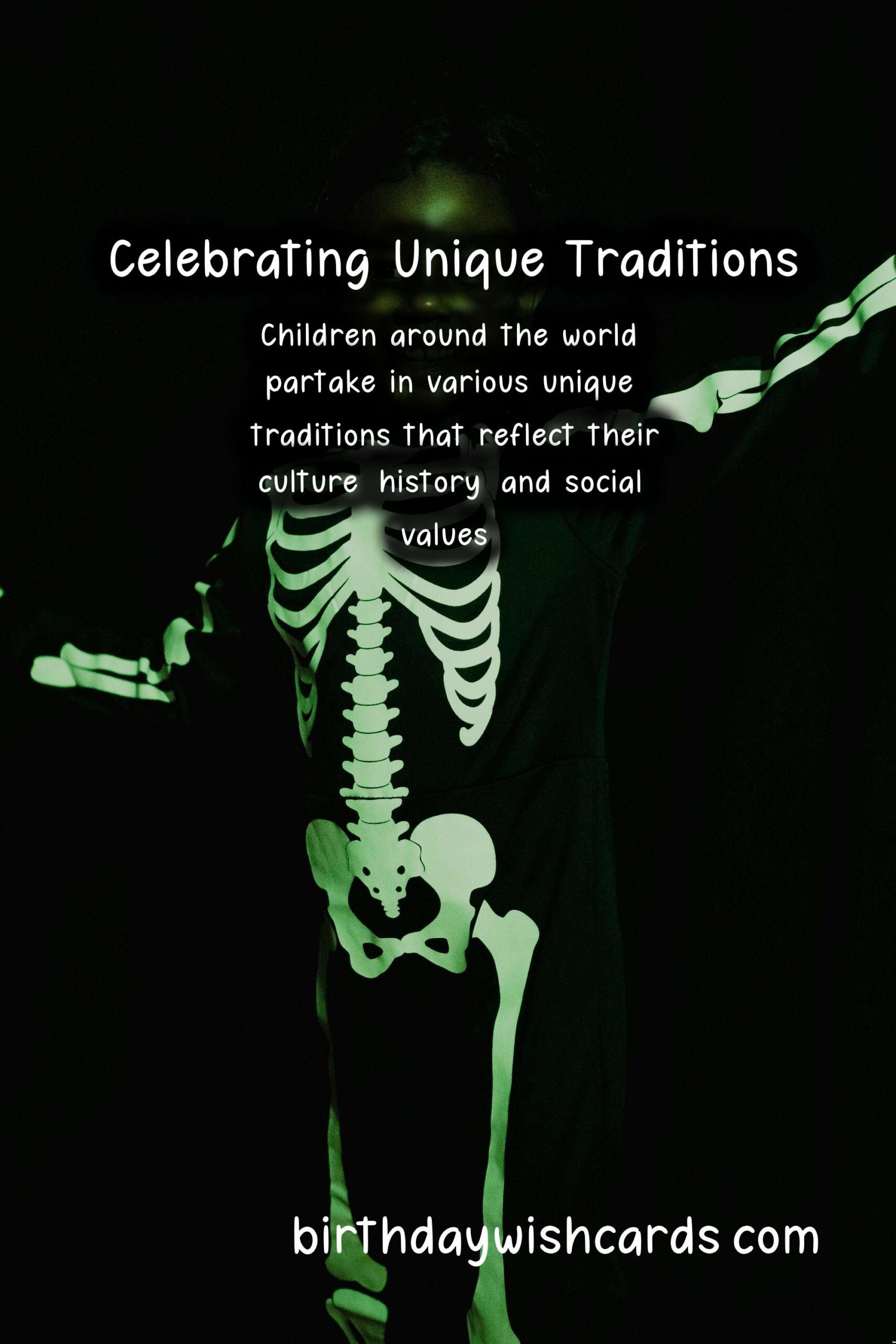
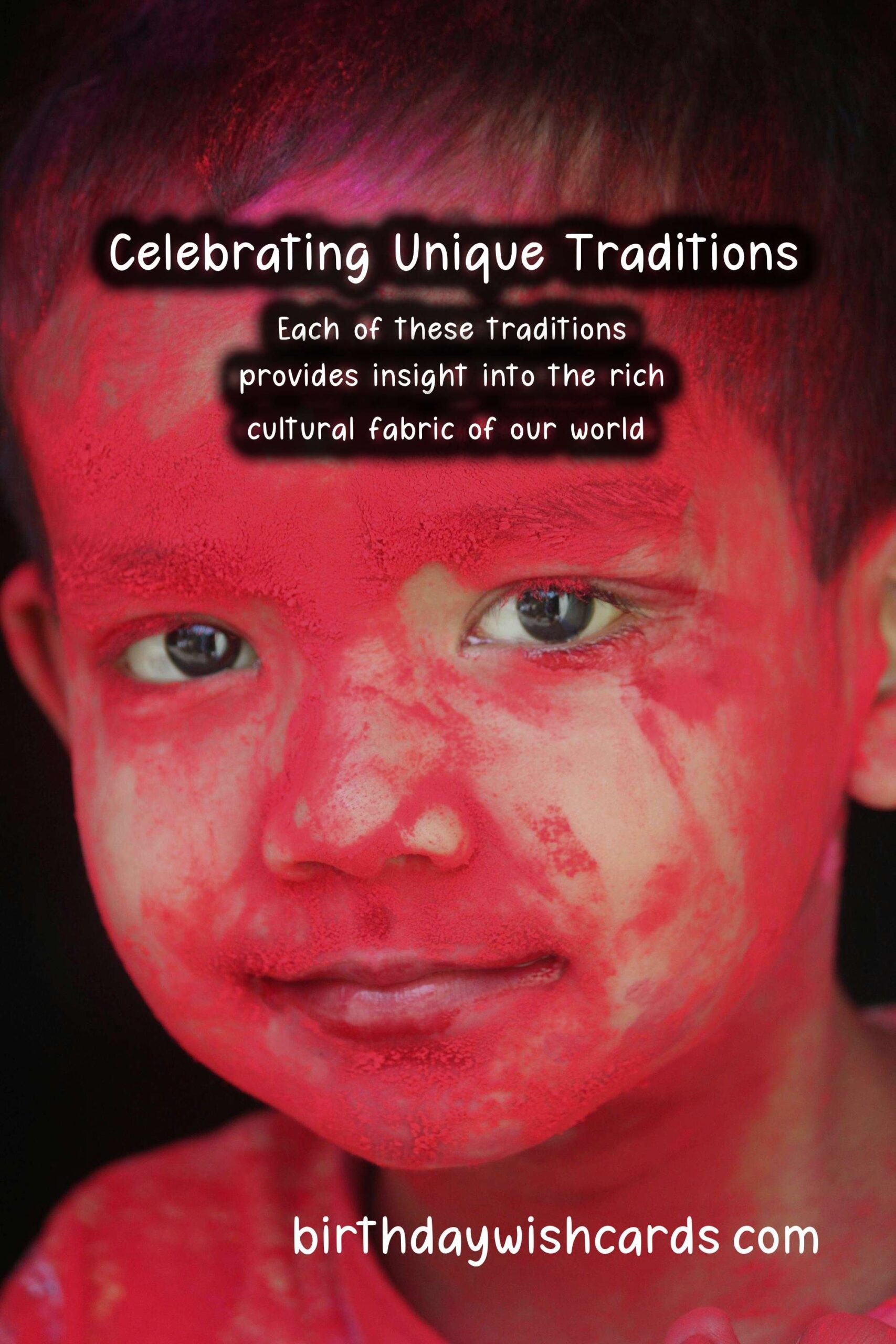
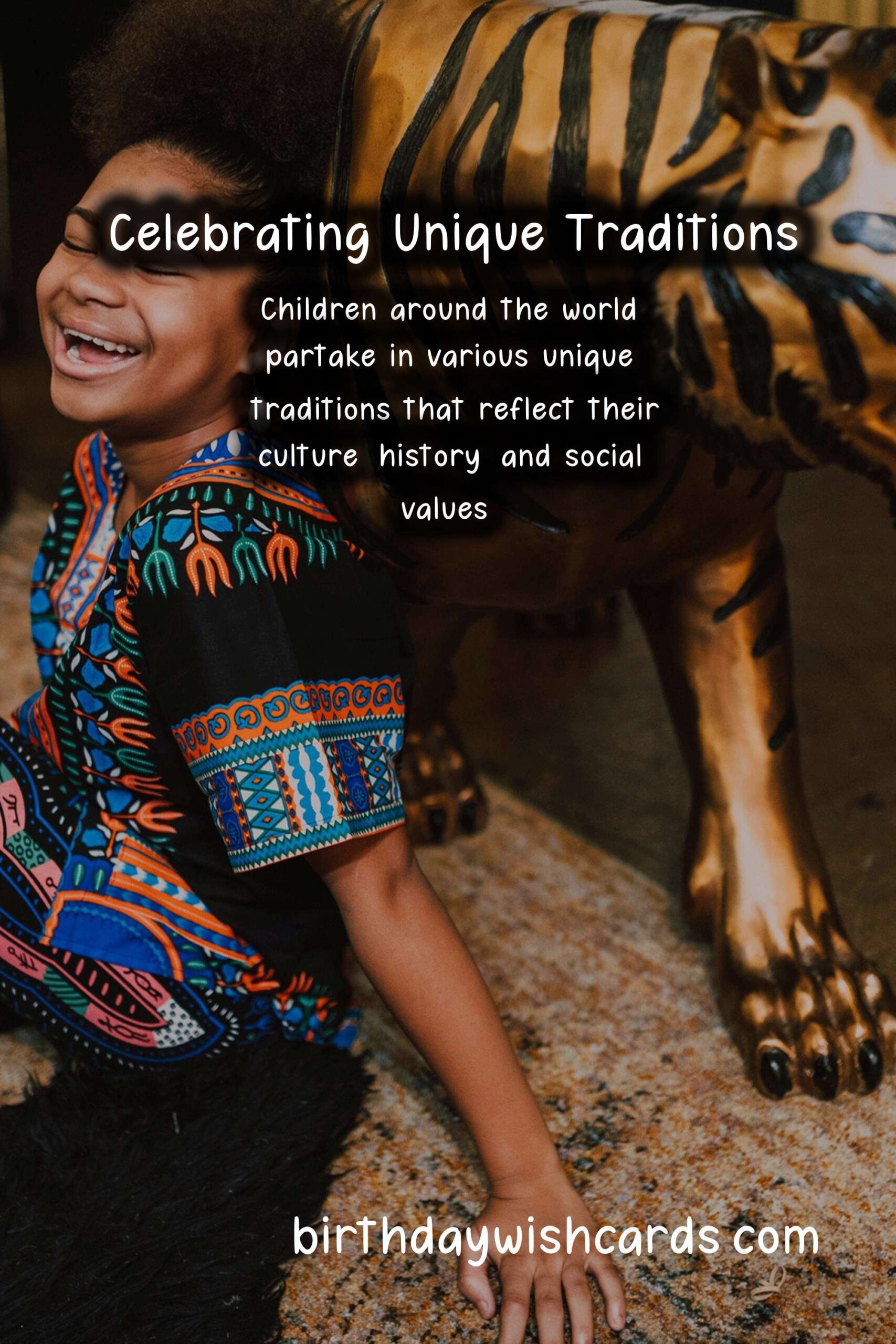
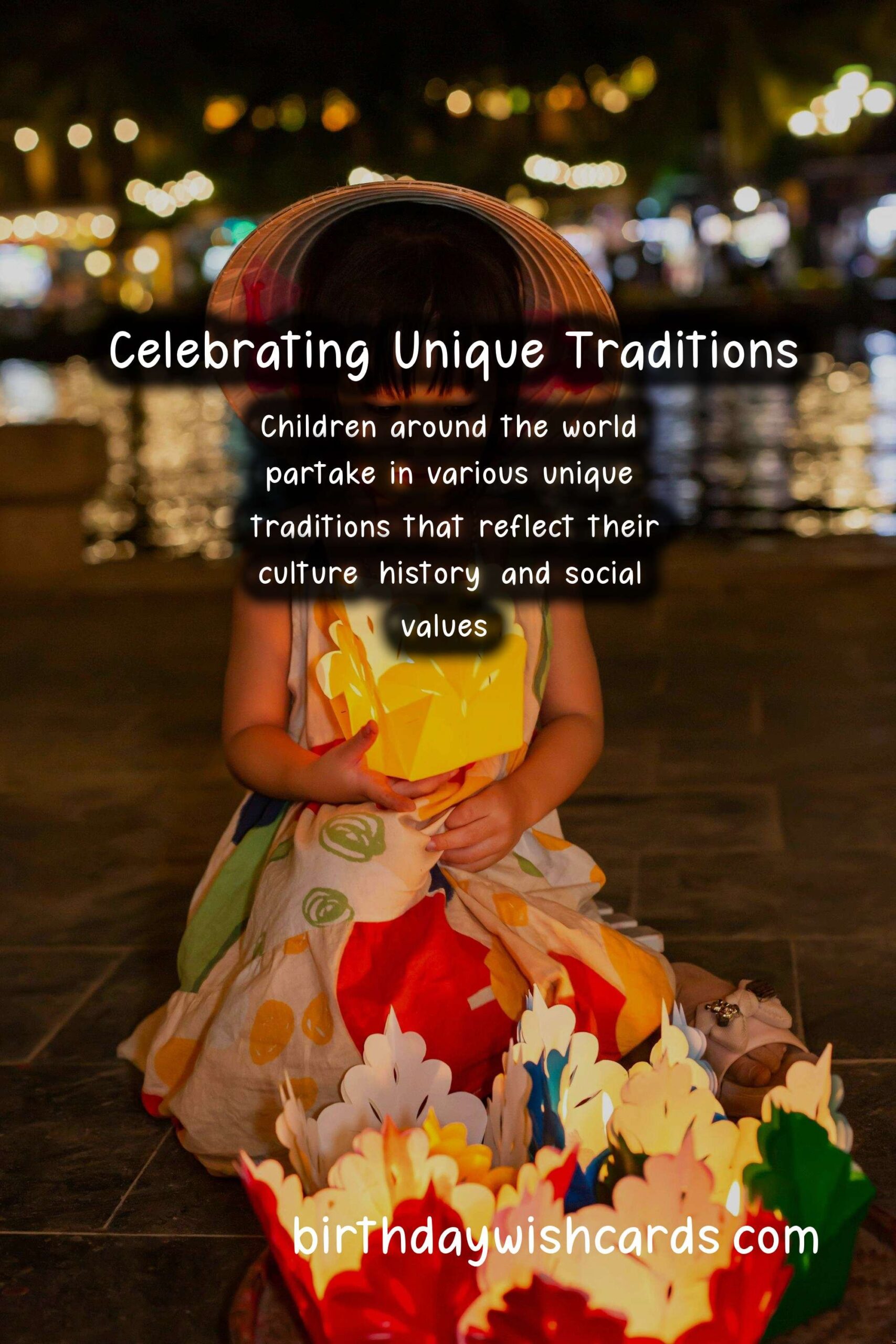
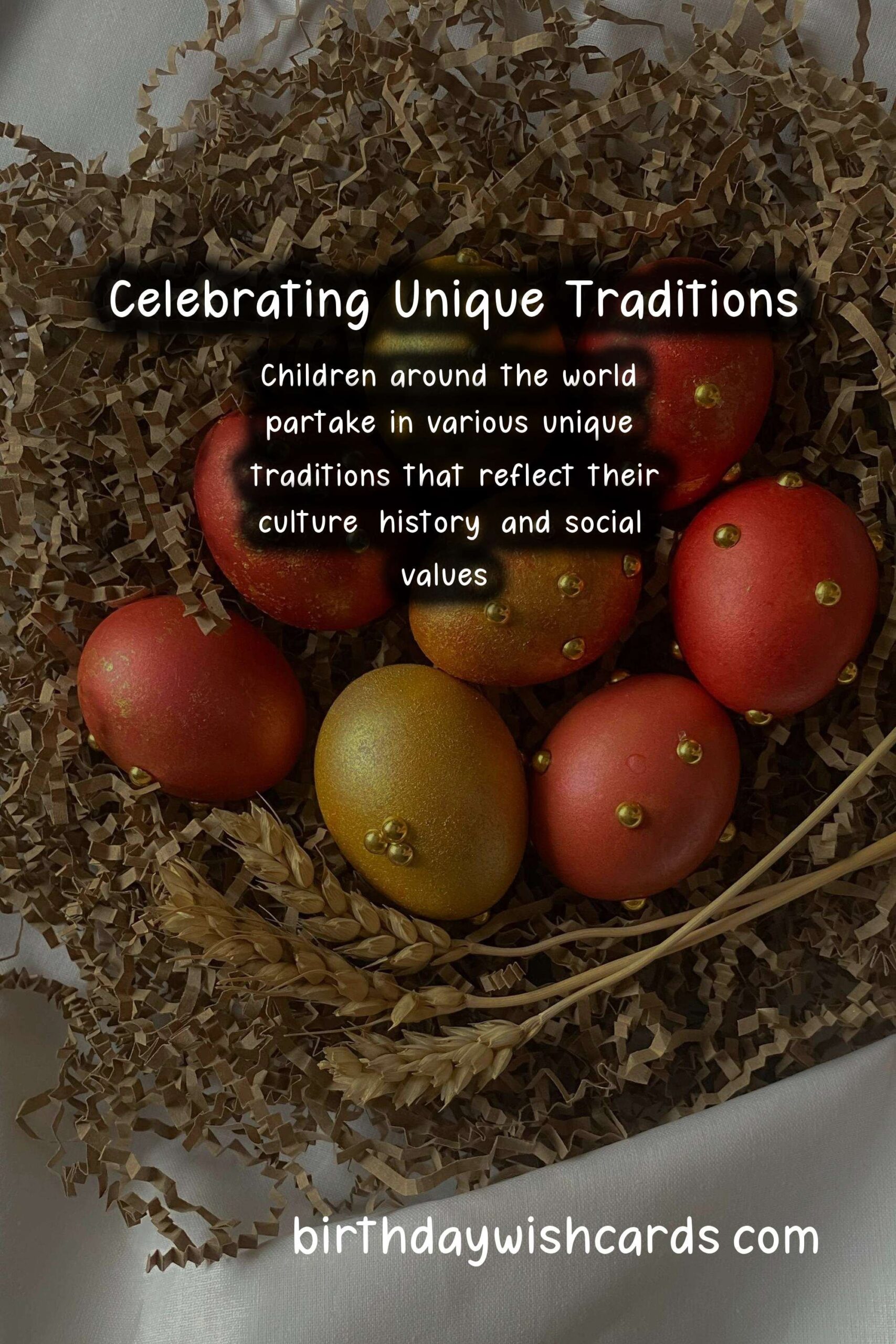
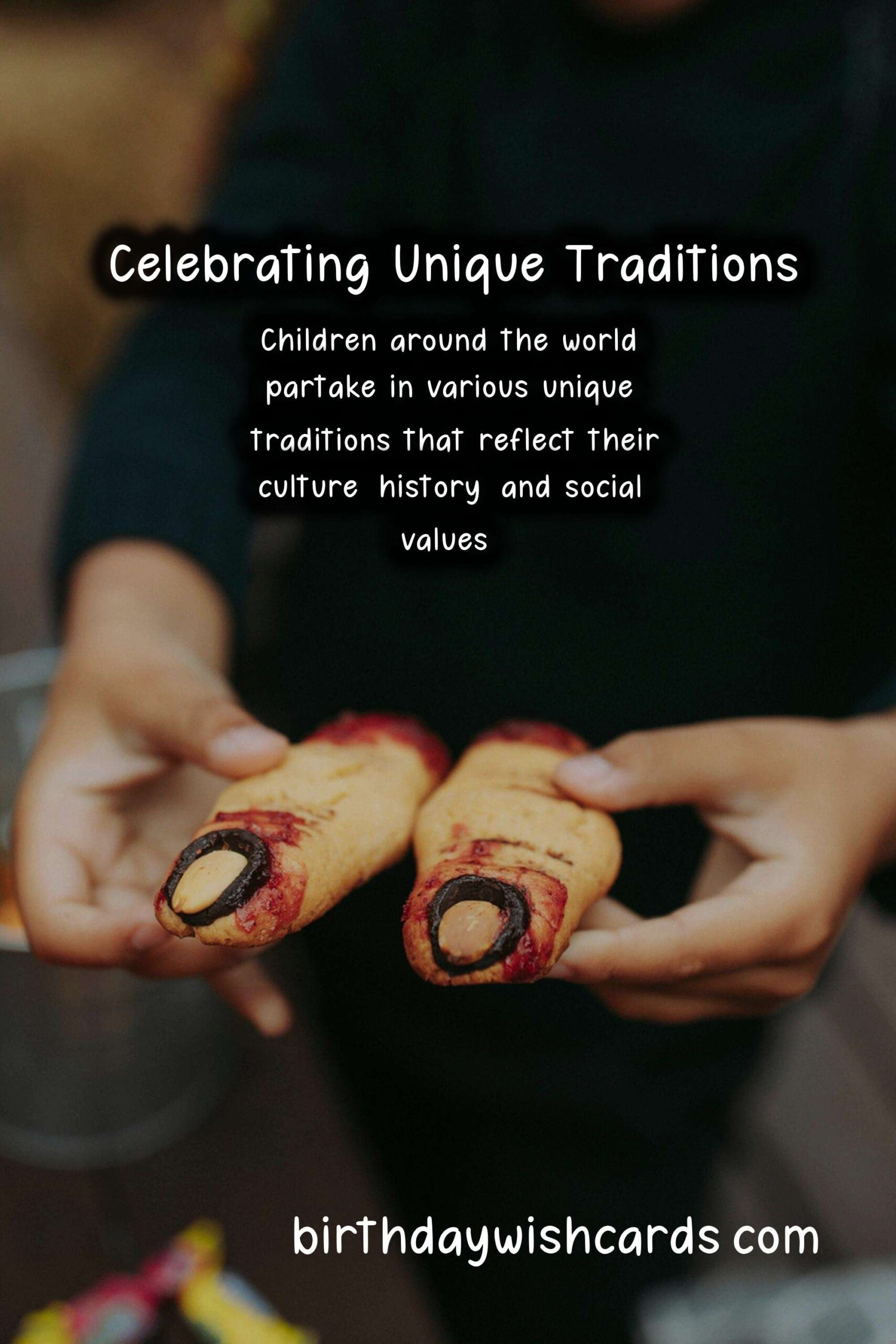
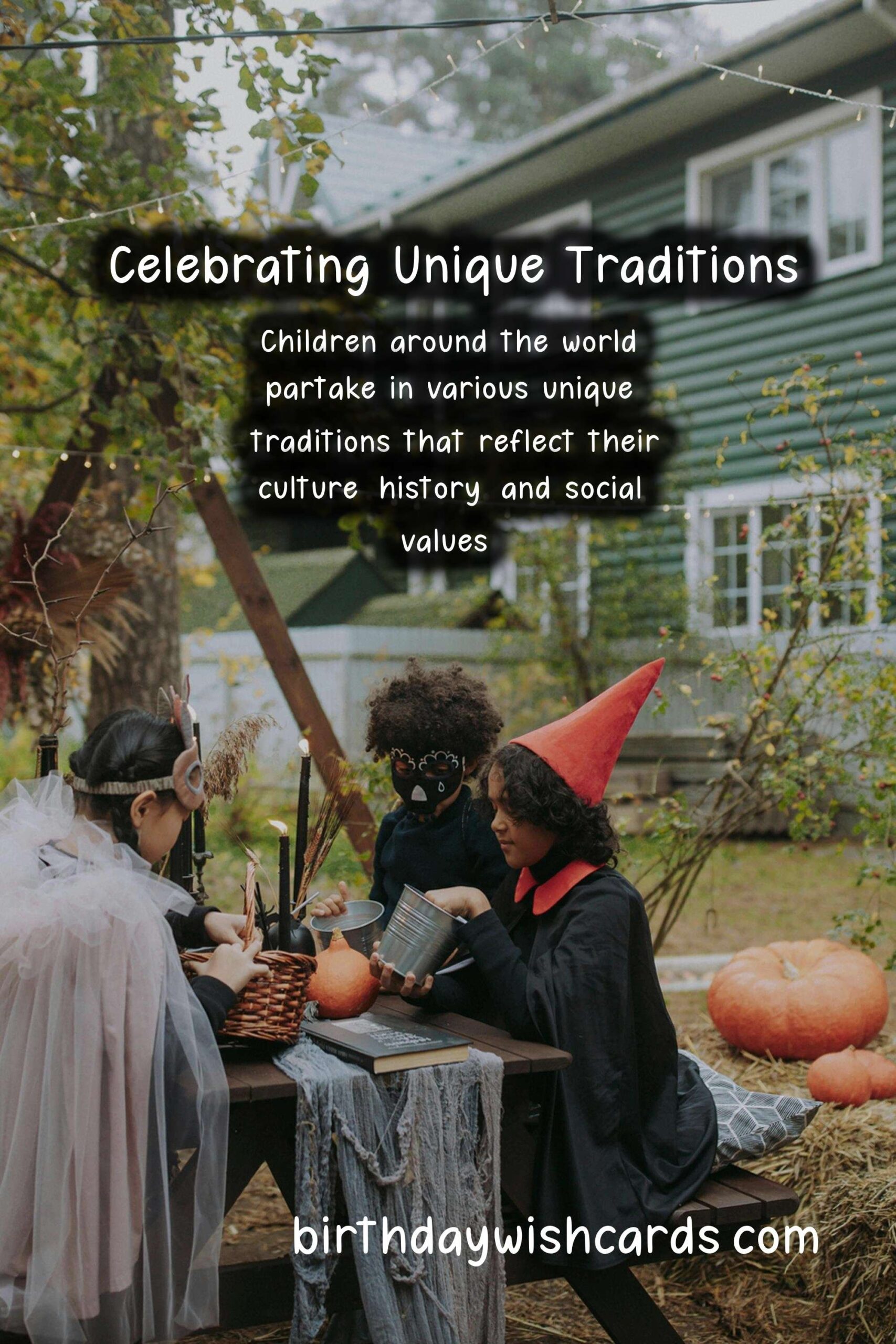
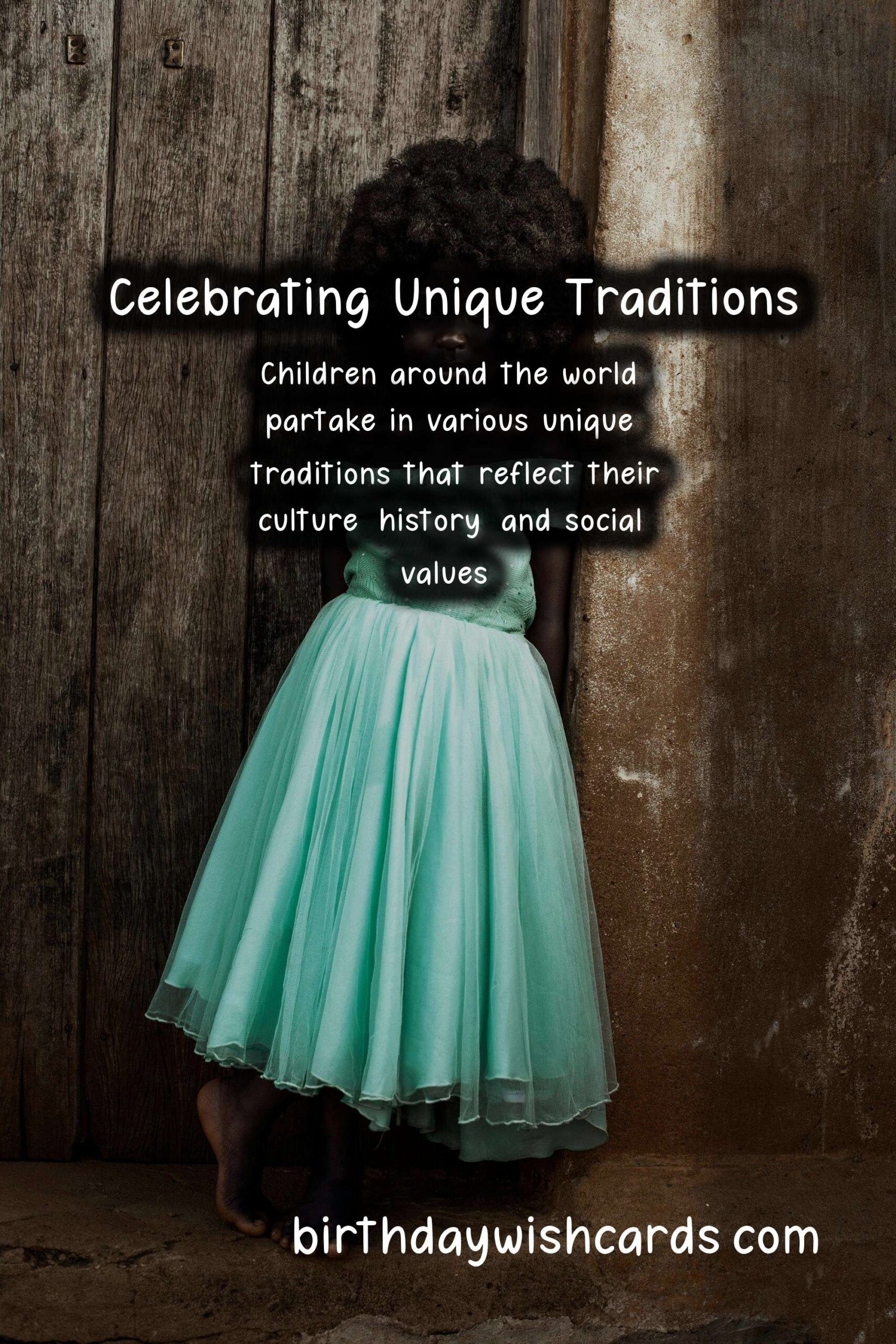
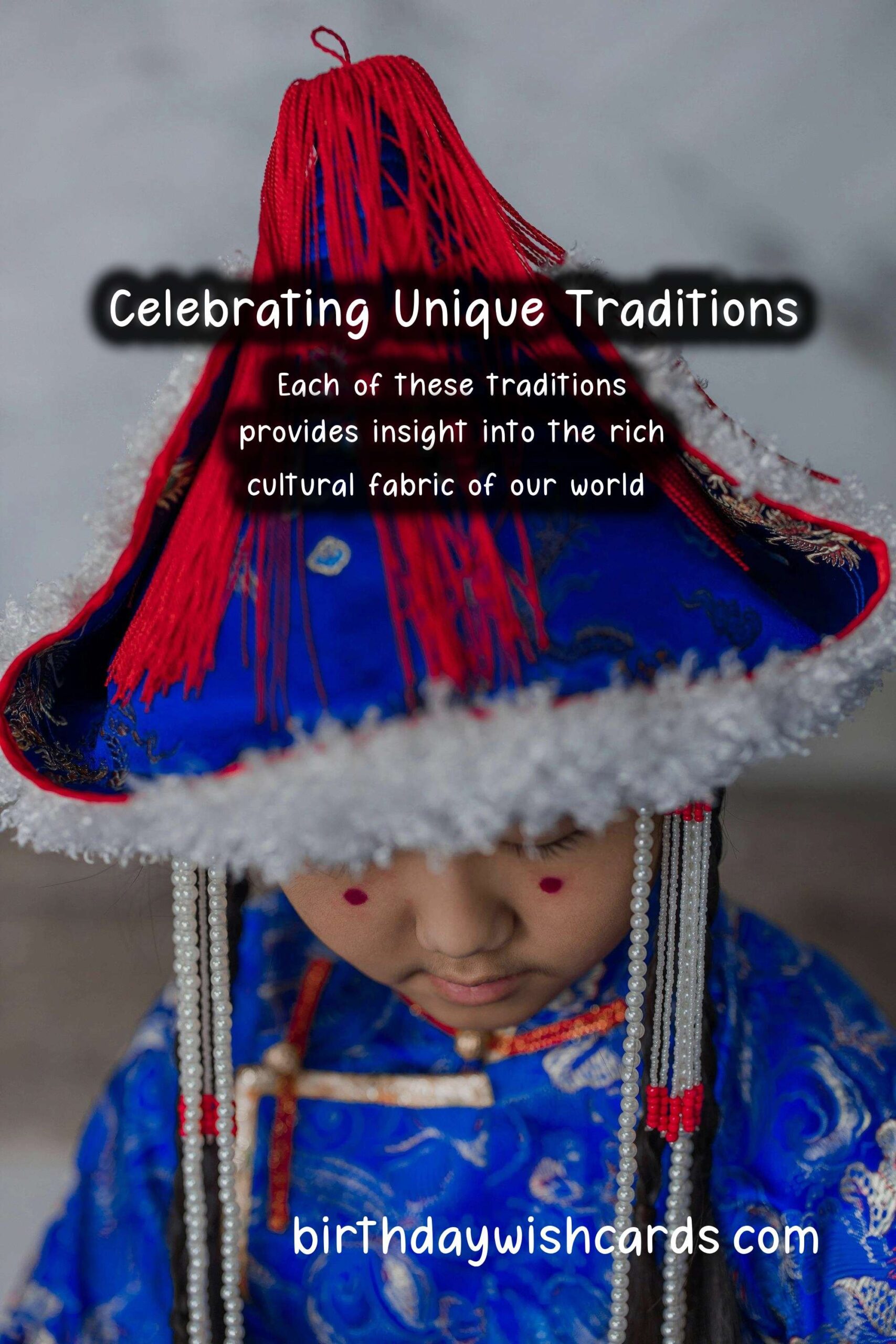
#KidsTraditions #CulturalCelebrations






